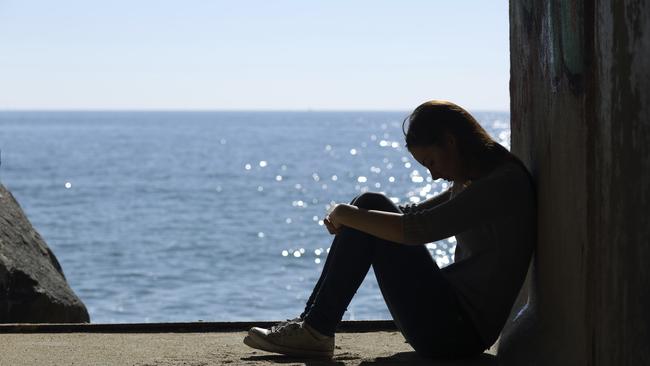Four out of five Aussies depressed, anxious as pandemic bites
Australians are reporting at higher rates than at the same time last year, with four in five people experiencing poor mental health, a survey has found.

Australians are reporting depression, anxiety and stress at higher rates than the same time last year, with four in five experiencing poor mental health, and children and young people the most seriously affected, as pandemic uncertainty and lockdowns continue to take a toll.
The pandemic was a major trigger, with 43 per cent of people aged 18 to 24 reporting a decline in mental health, and 41 per cent of parents seeing a negative impact in their children, the latest Smiling Mind state of mind report found. Across all age groups, 34 per cent of those surveyed said their mental health had declined in the pandemic, while 35 per cent were struggling with the impacts of Covid-19 on their mental health, the survey of 2000 demographically balanced respondents showed.
Some 45 per cent of those surveyed reported feeling depressed, up from 33 per cent in last year’s report, 57 per cent reported feeling anxious, up from 48 per cent, and 62 per cent reported feeling stressed, up from 47 per cent, with 78 per cent of total respondents reporting these symptoms.
Smiling Mind chief executive and clinical psychologist Addie Wootten said the worrying rise in poor mental health – including high rates of mental anguish with 53 per cent of Australians experiencing high levels of psychological distress – had begun even before the pandemic, and been exacerbated by it.
“It’s a really high figure, and much higher than what we expected, and an increase from last year,” she said. “In those different domains – stress, anxiety and depression – there is a significant jump from 2020 to 2021.”
Dr Wootten said isolation from friends, home learning and uncertainty had taken a particular toll on children, in which poor mental health often went undetected or untreated, with 36 per cent of parents reporting they didn’t feel equipped to address these issues in children. “The impact of this pandemic experienced by young children is often underestimated; we often find it hard to diagnose mental health in young people and it gets written off as bad behaviour.
“And that extends from the usual changes and structure in their routines that we have in our lives that give us control and certainty and knowing what’s in the future; it impacts on their sense of self and identity and has a big impact on mental health and we’re seeing more on the impact of learning outcomes.”
Dr Wootten, whose organisation focuses on prevention of mental illness, said services across the sector were reporting much higher rates of presentations asking for help. “When you speak to services they would echo the real shock of how many people are reaching out and asking for support and that is a sign there is an undercurrent of another pandemic, which is a mental health pandemic.”
Victorians also reported worse mental health, with 42 per cent from that state reporting struggling with the pandemic.




To join the conversation, please log in. Don't have an account? Register
Join the conversation, you are commenting as Logout